Get involved
100% of your donation will go to support the work of the Turneffe Atoll Sustainability Association
Marine tourism can be beneficial, but it can also be destructive. Following best practices in marine parks and protected areas helps responsible travellers do the right thing.
Marine ecotourism and responsible travel can have a very beneficial impact on marine parks and the coastal communities that depend on them. Tourism brings revenue to coastal areas, support jobs, and promotes understanding of marine conservation through exposure, and supporting science and research. However, if conducted recklessly or thoughtlessly, tourism can have the opposite effect – degrading or destroying the resources it is based on. Irresponsible travel can have lasting negative impacts on biodiversity, ecosystems and the livelihoods of people who live close to the ocean.
We’ve created this guide to help you be more aware of the issues involved when you travel in a marine protected area, and to help you follow best practices during your vacation — It’s vital to get this right, both for today and for future generations.
The best practices described here are all about avoiding putting harmful pressure on individual marine creatures and on entire communities. Some of the points will perhaps be obvious, while others will be more subtle, but no less harmful.
Snorkelling and diving are extremely popular activities, as they allow you to enter the undersea world and witness the behaviour of the creatures that live there.
However, there is a real risk of harm to the very ecosystems that you’ve come to see – especially through accidental damage to coral reefs. Especially if you’re less experienced in underwater settings, you may bump into corals, or impact the seabed.
Stirring up sand and sediment doesn’t just reduce visibility; it also affects the amount of sunlight reaching undersea plants and can affect the ability of filter feeding creatures to get enough food.
Coming to close to reef creatures can cause them to get stressed and change their behaviour. They may stop feeding or become more vulnerable to predators. If you give food to wild creatures, you can cause them to become dependent on humans.
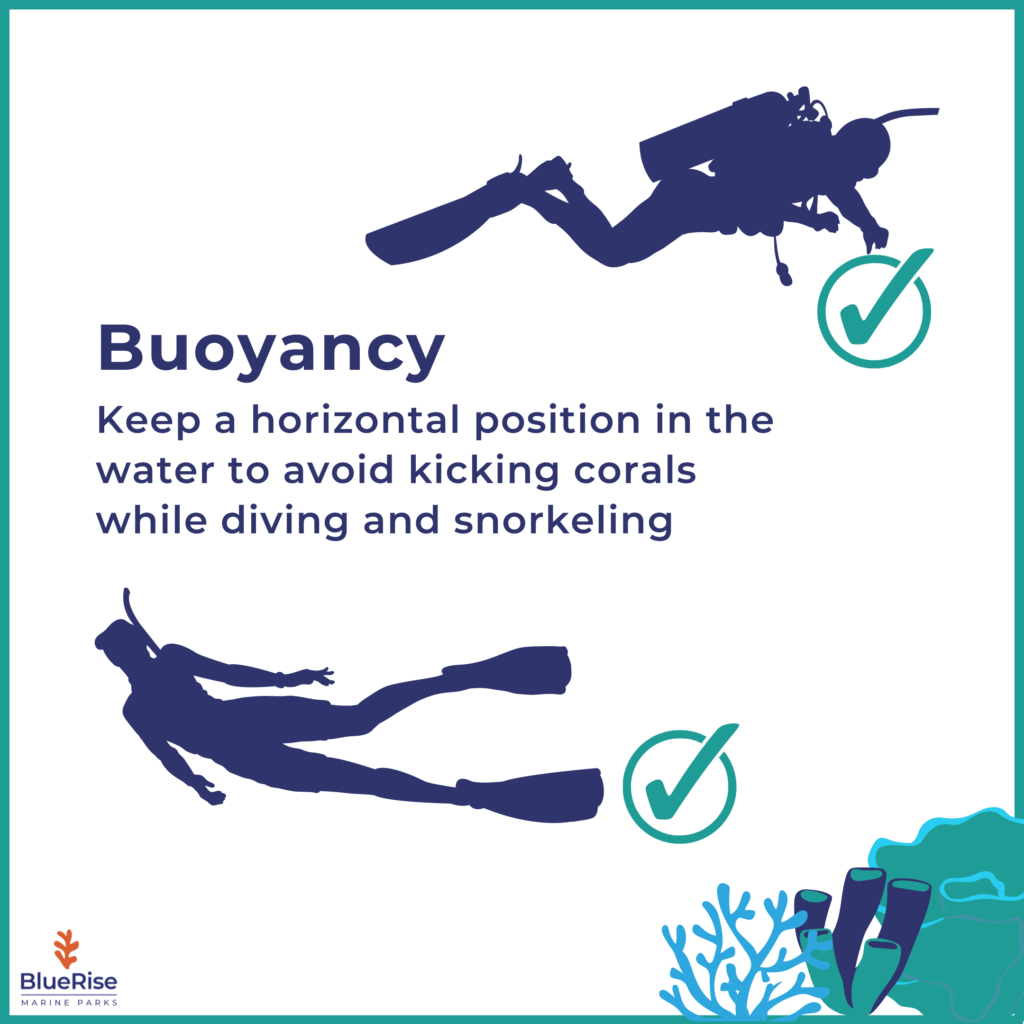
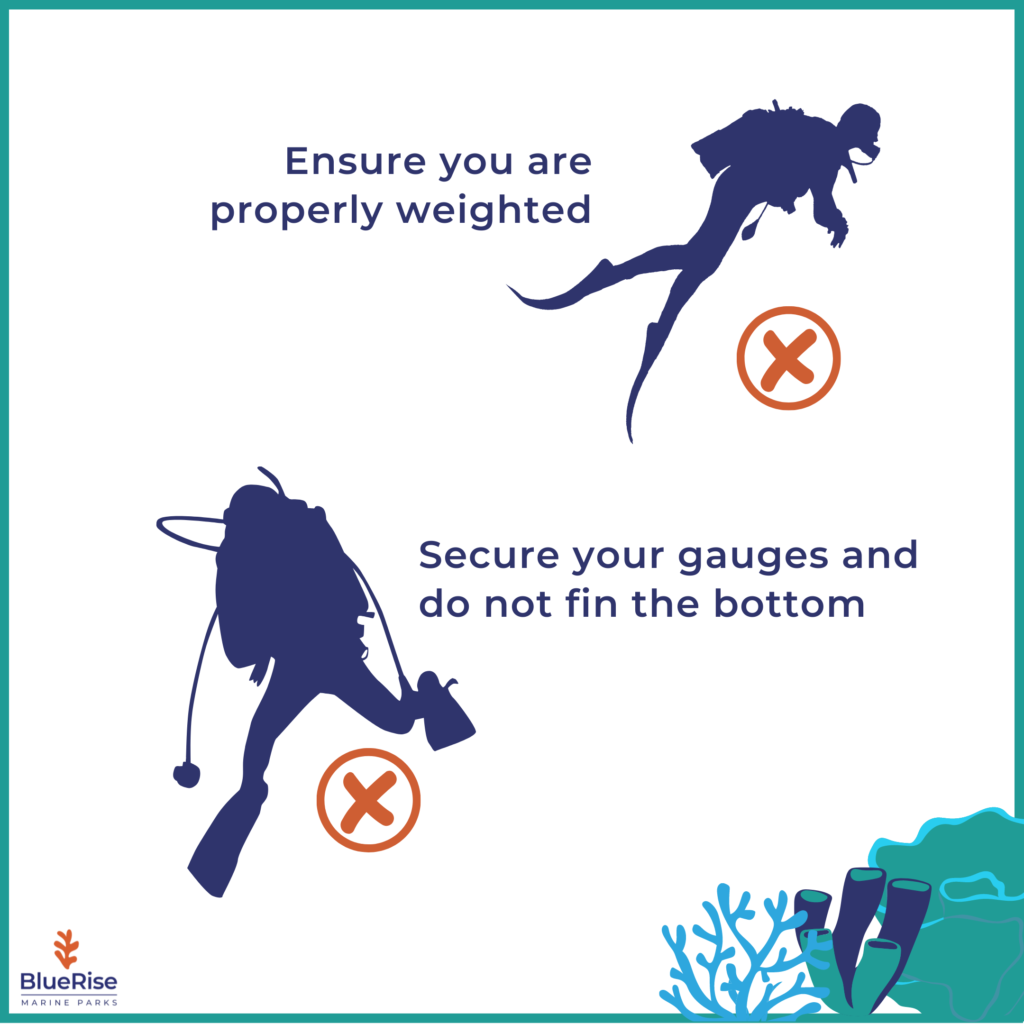
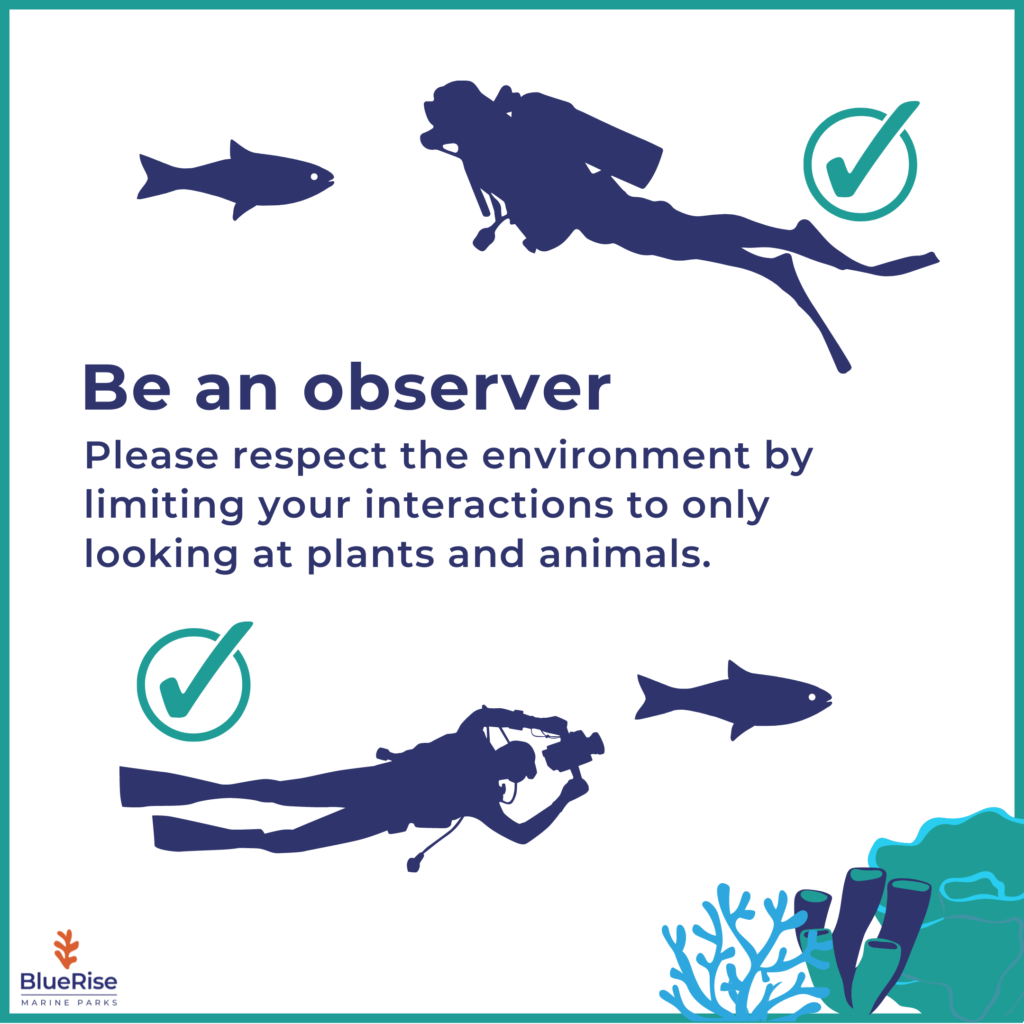
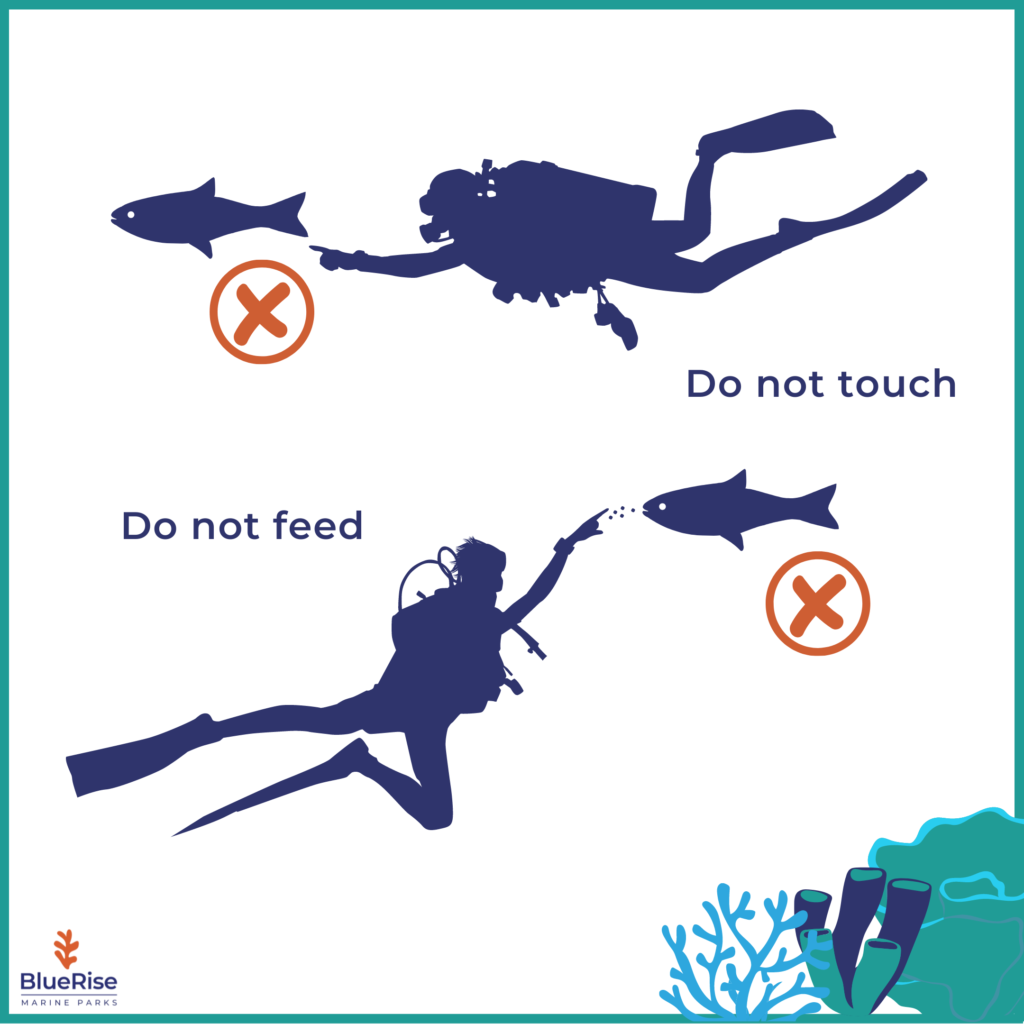
Corals in particular can take years to recover from being damaged, due to being very slow growing. Fish and other creatures have specific diets that don’t necessarily include snacks from divers. Your actions underwater can have a real impact – whether it’s dropping litter, kicking out with fins, or leaving bubbles in tunnels and caves.
Boats and kayaks give you access to offshore reefs and also make encounters with species like whales, dolphins and manatees. While these creatures are of course huge drawcards, they are also some of the most susceptible to being disturbed by humans.
Add in the fact that boats especially are capable of higher speeds and sudden changes of direction, and can have noisy engines, the potential for causing stress is significant. This is particularly true at important life cycle moments, like whale mothers with young calves.
The main negative impacts to watch out for are crowding animals or coming too close – especially when multiple boats are involved – as this can cause a lot of stress.
Noise from engines can interfere with the natural sonar used by whales and dolphins. There’s also the risk of collisions – especially with propellers – causing serious injuries to creatures on the surface. Slow-moving animals like sea turtles and manatees are especially at risk.
Of course, you’ve come on holiday to enjoy seeing marine wildlife behaving naturally in pristine habitats – the last thing you want to do is cause harm, even though it’s accidental. It’s clear that boats and kayaks can add a lot to your marine wildlife experience – but need to be well managed.
Physical damage to reefs can take years or even decades to recover due to very slow growth rates. Coral can even be killed off completely. This type of habitat degradation means reduced biodiversity – fewer fish for you to see, and less food for traditional fishing communities.
By stirring up the seabed, clouds of floating sediment are created. This leads to reduced visibility and less sunlight reaching the reefs. It can also choke seagrass (a vital filter) and many smaller creatures.
Pressure from boats can lead to changes in behaviour from some species – they could either come too close, looking for food and changing their natural behaviour, or more likely be scared away.
Because of the damage that anchors can cause, this deserves a special mention:
Fishing – and especially flyfishing – is an exciting and challenging pursuit that can be a real highlight of your trip. Inevitably, it has a degree of impact on the individual fish that you catch. Learn more about catch and release and the Keep Fish Wet welfare guidelines by clicking here.
However, leisure fishing can also impact ecosystems and other species – not just the ones that take your flies.
Concentrating on specific species (especially predators at the top of the food chain) can unbalance populations and lead to unnatural increases in other species.
Perhaps the most serious – and certainly the most enduring – negative impact of fishing is cause when tackle, hooks and fishing line are lost or discarded. This is a form of “forever pollution” and fishing line can carry on killing marine creatures long after you’ve headed home with pictures of your prize bonefish, permit or tarpon.
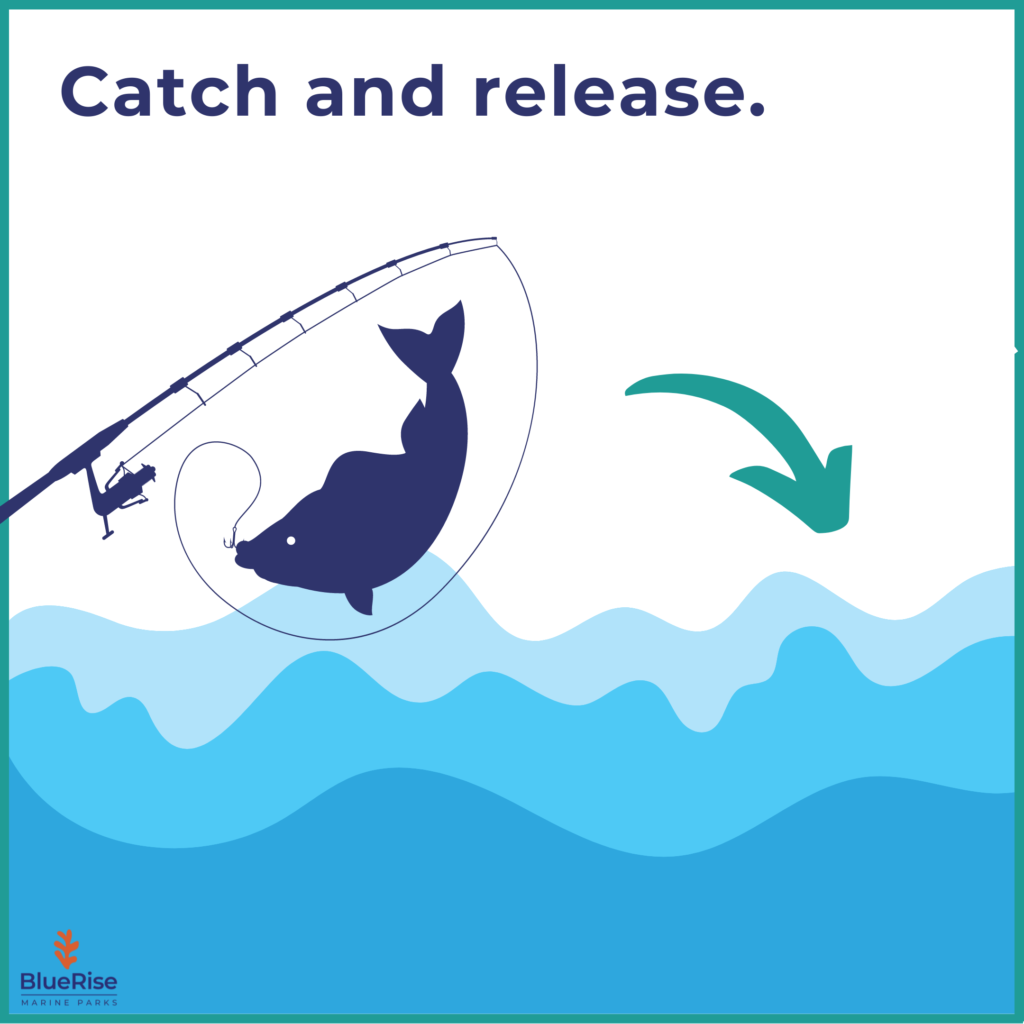
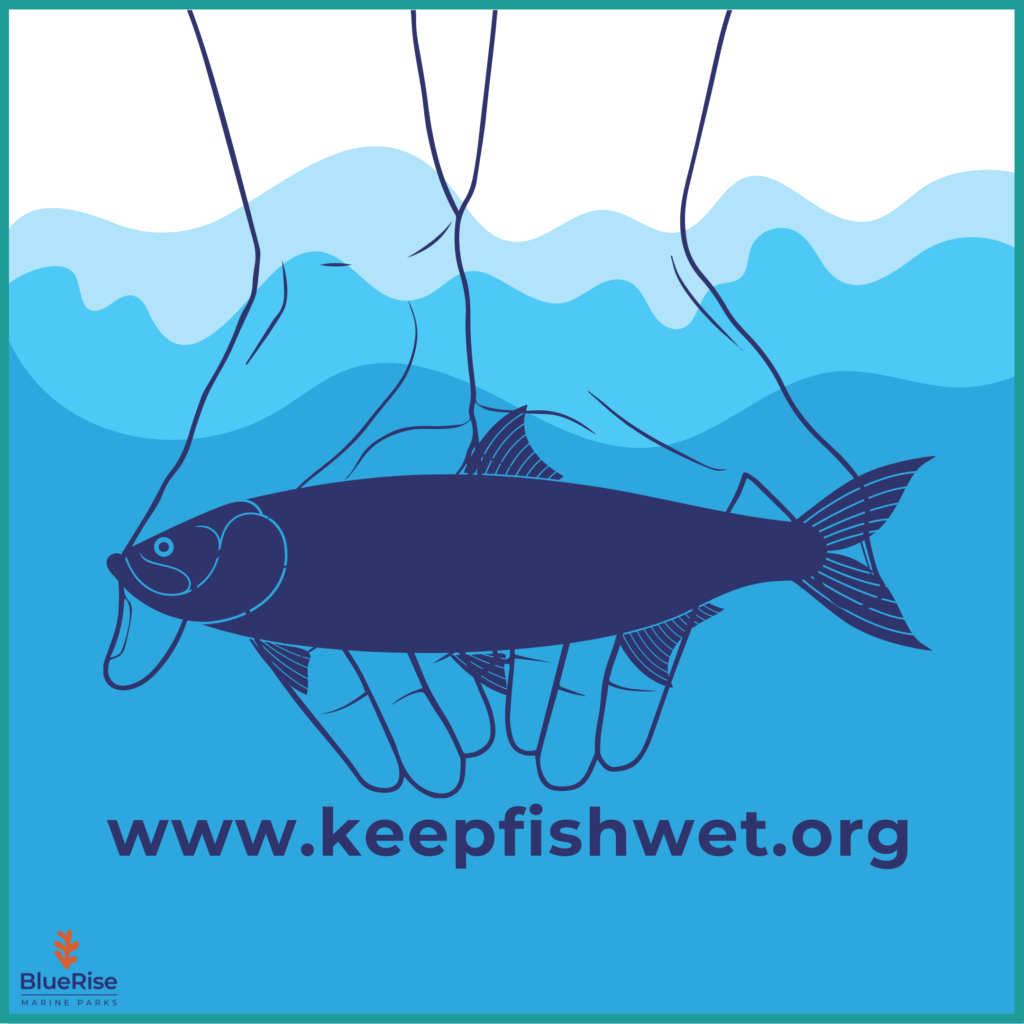
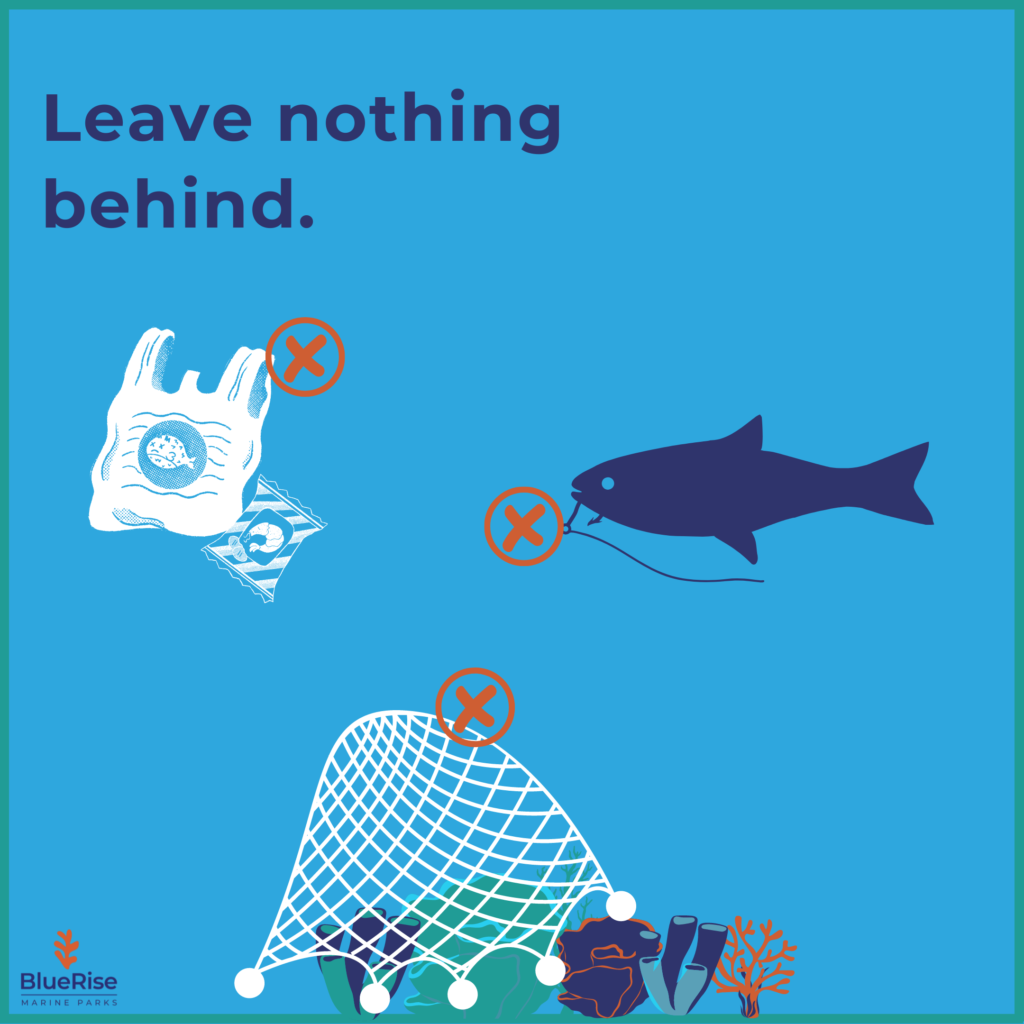
Reduced fish numbers ultimately lead to lower biodiversity. Overfishing can cause key species to become rare, making the area less attractive to future travellers, and affecting the livelihoods of local communities that depend on ecotourism.
Careless handling of individual fish can cause injuries or make them susceptible to disease, while the way you reach the best fishing spots (whether by boat, kayak or wading) can also cause disturbance if not done carefully.
Coastal communities rely on the ocean for much of their protein intake, and when you visit, you’ll be offered all sorts of wonderful seafood dishes. When you explore local markets, you’ll also see souvenirs sourced from the ocean (typically shells and pieces of coral). This is another aspect of your holiday where the choices you make can have a direct impact on the local ecosystem. By giving fish and other species a direct financial value, you make it much more likely that they will be exploited.
A vital part of the responsible travel equation is ensuring that species are worth much more alive than dead. When you eat them in a restaurant or buy parts of them in a market or on the beach, you’re creating an economic situation where killing the creature generates revenue. This can lead to overfishing of certain species. When harvesting is focused on this way, popular (or tasty) species can quickly become rare, leading to imbalances in the ecosystem and habitat disruption (otherwise known as cascading impacts).
When travellers create demand, local people will understandably try and meet this demand. This may lead to them employing unsustainable fishing methods to meet the demand.
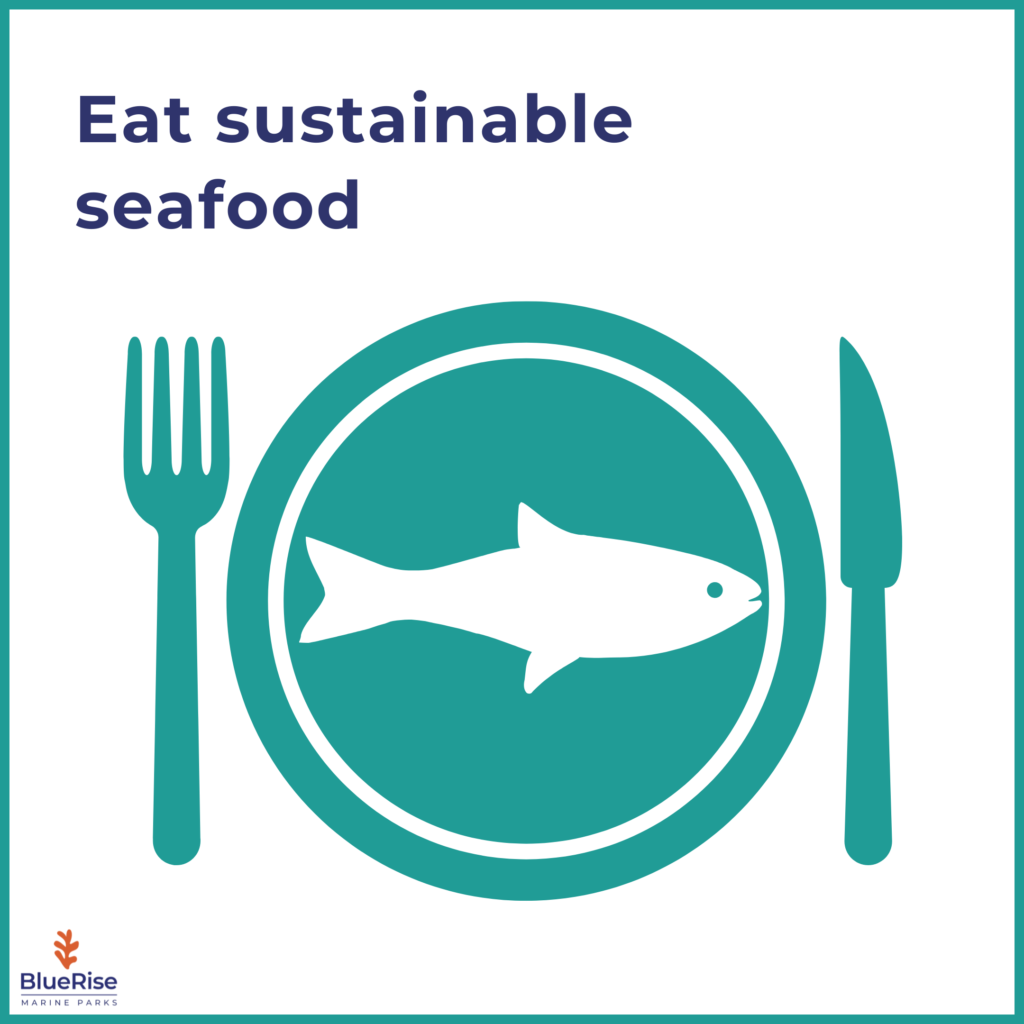
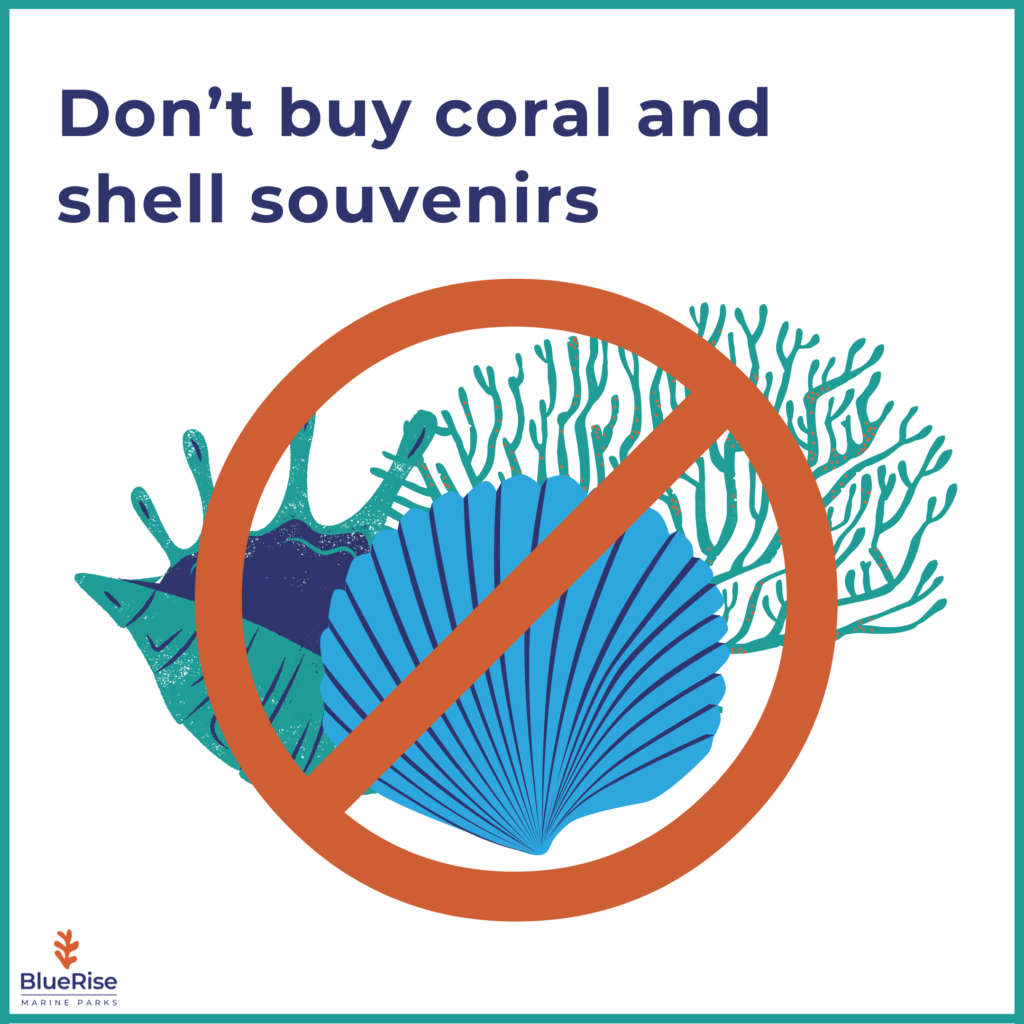
Marine wildlife is worth more alive! Biodiversity is essential for long-term sustainability of ecosystems, and selective harvesting and overfishing directly impact the numbers and variety of species in an area.
Illegal fishing can cause irreparable damage to reefs, and ultimately lead to a loss of livelihoods for coastal communities.
The decisions you make can cause a virtuous circle of positive consequences. If you reject the chance to eat or purchase vulnerable species, there is less chance that future travellers will be offered the same things. Biodiversity will be maintained, and localised extinctions will be avoided.
Souvenirs made from certain species could be illegal in your home country, so you risk having them confiscated at the airport. You could also receive a heavy fine.
The Turneffe Atoll Marine Reserve - a protected marine area of regional and global importance that includes a mosaic of rich ocean habitats.
Turneffe Atoll is a biodiversity hotspot with an abundance of iconic, important and threatened species.
We can only save what we can understand, which is why science is so important for corals and reef ecosystems like Turneffe Atoll in Belize.
Marine Protected Areas (MPA's) are the ocean equivalent of a nature reserve on land – that is, a defined area that is legally protected.
Coral reefs are the building blocks of life – both in the oceans and on land. The importance of coral reefs cannot be overstated.
100% of your donation will go to support the work of the Turneffe Atoll Sustainability Association